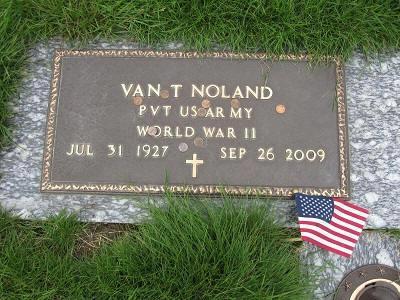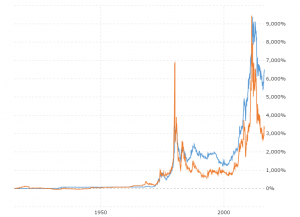Why Do Soldiers Leave Coins As A Memorial?
Have you ever seen a coin placed atop a gravestone in a cemetery? If you’ve ever walked through Arlington National Cemetery or any other site where a fallen soldier is buried, this is a common appearance. That coin atop the gravestone has a special significance whether it’s placed by a loved one or a U.S. service member. And although the meaning of this custom has changed over time, the tradition is long with history. The tradition can be dated as far back as the ancient Greek and Roman civilizations.
According to ancient Greek mythology, the River Styx formed the boundary between the living on Earth and the dead in the Underworld. When a person died, their soul needed to cross the river via ferry to gain entrance to the afterlife. But in order to get across the river, they needed to pay the ferryman, Charon. This is where the custom of placing coins on the dead (in their mouths or on their eyes) first arose. If you did not have a coin to pay the toll, then your soul was left to wander the shores for the next 100 years.
The Romans altered the tradition slightly by placing coins of varying denominations on graves, with each coin signifying a different meaning. After the Vietnam War, United States service members carried on the tradition. The coins were used as a silent way to pay their respects and communicate with their fallen comrade’s families without saying a word. Because of the politics surrounding the Vietnam War, this practice became widespread during that timeframe. The silent coin on a gravestone allowed soldiers to pay their respects without risking a potential debate with the family of the fallen soldier.
Since then, the coin on the gravestone has slowly evolved, with each coin telling a different story.
- Penny: a penny on the gravestone signifies that the person who placed it, knew the fallen from military service.
- Nickel: a nickel on the grave means they trained together in boot camp.
- Dime: a dime on the gravestone means that the person who left it served in the same company as the deceased.
- Quarter: the most meaningful of all denominations. A quarter on the gravestone signifies that the person who left it was with the soldier when they died.
There are also other meanings, most notably is the “down payment.” This is when a soldier leaves change on a fallen comrade’s gravestone. This is essentially to let his buddy know that he’ll buy him a drink on the other side. The change is a way of saying he’s good for it.
It’s common practice for the cemetery’s groundskeeper to eventually collect all of the loose change and put it towards the grave maintenance of less fortunate fallen soldiers.









